Best Fertilizer for Fruit Trees
- December 20, 2023
- 0 comment
Adding fruit trees to your garden not only enhances its visual appeal but also promises a rewarding harvest of fresh, home-grown fruit. However, the secret to healthy growth and an abundant yield lies in choosing the right fertilizer. This comprehensive guide delves into the best fertilizers for various types of fruit trees, offering practical advice for gardeners seeking to optimize the growth, health, and fruit production of their trees. Whether you’re cultivating apple trees, citrus groves, or tropical fruit varieties, discover essential tips and tailored recommendations to ensure your fruit trees flourish.
Understanding Fruit Tree Nutrition
Understanding the nutritional needs of fruit trees is key to their health and fruit production. Nitrogen (N) is essential for leaf and vegetative growth, but too much can hinder fruit production. Phosphorus (P) is crucial for root development, flowering, and fruit formation, especially in early growth stages and fruit development. Potassium (K) enhances overall plant health, disease resistance, and fruit quality.
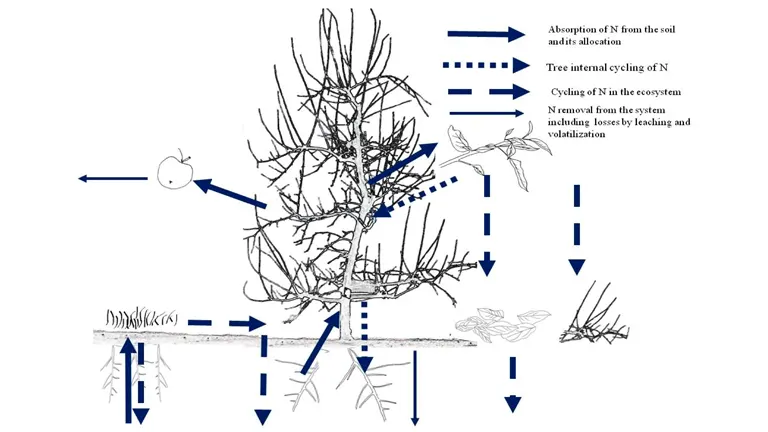
Micronutrients, though needed in smaller amounts, are vital. Iron (Fe) is essential for chlorophyll synthesis, manganese (Mn) assists in nitrogen assimilation, and zinc (Zn) is crucial for hormone production. Deficiencies in these can lead to stunted growth and poor fruiting.
Soil pH also plays a significant role in nutrient availability. Most fruit trees prefer slightly acidic to neutral soil (pH 6.0-7.0). Incorrect pH levels can hinder nutrient absorption. Soil pH can be adjusted with lime to increase alkalinity or sulfur to increase acidity.
Regular soil testing is recommended to identify specific nutritional needs, ensuring your fruit trees receive the right balance of nutrients for optimal growth and fruiting.
7 Best Fertilizers for Fruit Trees
1. Jobe’s Organics Fruit and Citrus Fertilizer
Jobe’s Organics Fruit and Citrus Fertilizer stands out as a highly effective, environmentally friendly option for nurturing various types of fruit trees. Comprised of organic components like processed manure, sulfate of potash, bone, and feather meal, it provides a nutrient-rich diet that is quickly and aggressively absorbed through the roots. This rapid action is particularly beneficial for reviving dying or yellowing trees, leading to a noticeable improvement in the quantity and quality of blooms and fruits in just a few days.
A unique feature of this fertilizer is the inclusion of Biozome, a blend of beneficial microorganisms that enhances soil vitality and promotes long-term soil health. Its organic nature not only makes it safe for the environment, pets, and humans but also strengthens the trees’ immune systems, reducing the risk of diseases and pests. The granular form allows for easy and adjustable application, and its NPK ratio of 3-5-5 is particularly designed for long-term tree health and productivity. Furthermore, it is also useful as a compost starter, adding to its versatility.
Pros
- Organic and OMRI listed.
- Easy-to-use granular formula.
- Suitable for both new and established trees.
- Enhances drought resistance in fruit trees.
- Guaranteed not to burn if used correctly.
- Can be used as a compost starter.
Cons
- Has a noticeable and potentially unpleasant smell.
2. Urban Farm Fertilizers Apples, Oranges & Citrus Fertilizer
Urban Farm Fertilizers’ Apples, Oranges & Citrus Fertilizer is a unique, micro-brewed liquid fertilizer designed for all types of fruit trees. Handcrafted daily, this fertilizer ensures a fresh mix of nutrients, boasting a complete nutritional profile with a 4-2-4 NPK ratio. Its formulation combines greenhouse-grade minerals with concentrated organic materials, including worm castings, mycorrhizae, humic acid, kelp, and other essential minerals. A notable feature is its richness in calcium, crucial for enhancing the size, flavor, and juiciness of fruits.
One quart of this concentrated fertilizer can produce 64 gallons of liquid fertilizer, making it an economical choice. It is versatile enough for use in various growing environments, including in-ground, pots, or hydroponic systems. The application is flexible, accommodating hand watering, hose-end, or drip irrigation systems, and it’s even suitable for foliar applications.
This fertilizer remains viable for up to two years after opening, provided it is well-shaken before use. The recommended usage is mixing 1 tablespoon of fertilizer with 1 gallon of water, applied every three weeks during watering.
Pros
- Versatile for container, soil, and hydroponic gardening.
- Organic, suitable for eco-conscious gardeners.
- Long-lasting, reducing the need for frequent reapplication.
- A complete stand-alone fertilizer, eliminating the need for additional supplements.
Cons
Some customers have raised concerns about the product’s cost-effectiveness, feeling that the quantity does not justify the price.
3. Fruit and Citrus Spikes by Miracle-Gro
Miracle-Gro’s Fruit and Citrus Spikes offer a straightforward and efficient method for fertilizing mature fruit trees. These spikes, designed to be pushed into the soil near the root zone, provide targeted nutrition. It’s important to moisten the soil before inserting the spikes to prevent root burn, and they should never be used in dry soil. Each package includes 12 spikes, with the quantity used depending on the tree’s size and diameter. The spikes are formulated with a potent NPK ratio of 15-5-10, making them particularly beneficial for mature fruit trees. Application is recommended once in spring and again in fall.
A notable feature is the inclusion of a plastic cap, which aids in hammering the spikes into the ground without damaging them. However, these spikes are not suitable for young trees or those in containers, and they must be stored in a dry location to prevent damage from moisture.
Pros
- Minimizes the risk of over-fertilizing or incorrect dosage.
- Can also be used for Palm trees, demonstrating versatility.
- Composed of natural ingredients, ensuring safety and quality.
- User-friendly, offering a hassle-free fertilization process.
Cons
- Not appropriate for young fruit trees or those growing in containers.
- The large size of the spikes might limit their suitability for some tree types.
4. Down to Earth Citrus Fertilizer
Down to Earth’s Citrus Fertilizer is a premium choice for those dedicated to organic fruit gardening, especially for citrus trees. Established in 1977, this brand has a long-standing reputation for producing quality organic products. The fertilizer is distinguished by its NPK ratio of 6-3-3, which is well-suited for a broad range of fruit trees, including citrus, berries, and nuts. Beyond the primary macronutrients, this fertilizer is enriched with essential nutrients such as sulfur, zinc, magnesium, and iron.
It stands out in the market as the only fertilizer with organic sources of zinc, calcium, and iron, blending the best of organic and chemical nutrients. The composition includes natural ingredients like fish bone meal, feather meal, alfalfa meal, and kelp meal, all known for promoting robust foliage, flowers, and fruit growth.
For application, new trees require ½ to 1 cup of fertilizer mixed into the soil, while established trees need 1 cup per inch of trunk diameter. It’s recommended to feed citrus trees with this fertilizer 3-4 times per year for optimal fruit production. However, as a granular fertilizer containing insoluble materials, it should not be mixed with water.
Pros
- Specifically designed for organic gardening and OMRI certified.
- Eco-friendly with recyclable packaging.
- Particularly effective for citrus trees, both in pots and in-ground.
Cons
- Insoluble in water, limiting some methods of application.
- Higher cost compared to some other fertilizers.
- May emit an unpleasant odor.
5. Dr. Earth Fruit Tree Fertilizer
Dr. Earth Fruit Tree Fertilizer is recognized as a remarkable organic solution for both new and established fruit trees. Its NPK ratio of 5-5-2 is tailored to support healthy growth and revival of fruit-bearing trees. The standout feature of this fertilizer is the inclusion of probiotics, which foster beneficial microorganisms in the soil, significantly enhancing root development and nutrient absorption. This organic formulation ensures a healthy and robust yield, offering an all-natural nutrient source that sustains the trees over several weeks to months, thereby reducing the need for additional chemical fertilizers.
It is particularly effective for various types of fruit and nut trees, which should be fertilized every three months during the growing season, while fruit vines and berries require feeding every two months.
Detailed application instructions are provided on the package, emphasizing the importance of watering the soil post-fertilization to prevent root damage.
Pros
- Minimizes the risk of over-fertilization, making it user-friendly.
- Specifically formulated to promote vigorous fruit and root development.
- Completely organic, appealing to environmentally conscious gardeners.
- Strengthens the root system of fruit trees, enhancing overall tree health.
- Suitable for use at the initial planting stage of fruit trees.
- Water-soluble, ensuring easy application.
Cons
- The strong smell may make it unsuitable for indoor fruit trees.
- Not suitable for hydroponic systems.
- There have been reports of mold growth on soil after application, which may be a concern for some users.
6. Fruit and Citrus Plant Food by EarthPods
Fruit and Citrus Plant Food by EarthPods is a unique and innovative fertilizer option for those looking to nourish their fruit trees. Its special formula is designed to release a rich blend of minerals, nutrients, humus, and soil organisms, all vital for the growth and biological activity of the trees. One of the most appealing features of this fertilizer is its mess-free, no-odor formula, making it a preferred choice for indoor use. The application is straightforward: simply place a capsule near the tree’s center in the soil and water it.
The capsule design ensures that the nutrients are released directly into the soil, targeting the root zone for maximum efficiency and minimal waste. Each package comes with 100 capsules, making it a convenient option for treating multiple trees throughout the year. It’s particularly effective in enhancing root development, increasing blooms, and producing more flavorful fruits. The fertilizer is recommended to be applied every 2 or 3 weeks during the growing season, and the dosage can be adjusted based on the size of the fruit tree.
For enhanced results, it’s suggested to use EarthPods Teardrops along with this fertilizer.
Pros
- Ideal for indoor fruit trees due to its odorless nature.
- Eco-friendly packaging, aligning with sustainable practices.
- Versatile, suitable for all types of fruit trees, including bananas.
- Easy to store and recyclable, adding to its environmental benefits.
- Vegan formulation without urea, catering to ethical gardening practices.
- Applicable for both potted and in-ground trees.
Cons
- More expensive compared to other organic fertilizers on the market.
- Slow-acting, with nutrients released gradually over time.
7. Citrus-Tone Plant Food by Espoma
Citrus-Tone Plant Food by Espoma is a natural and effective fertilizer, specially formulated for citrus trees but equally suitable for other fruit and nut trees. Its enriched formula, boasting an NPK ratio of 5-2-6, focuses on providing a high phosphorus content, which is key to healthy fruit development. The standout feature of Citrus-Tone is its ability to enhance soil quality by introducing thousands of living soil microbes. This addition significantly boosts the soil’s fertility and the overall health of the trees. Users have observed visible results, such as the transformation of yellow leaves to green and the development of stronger, thicker branches, within just two weeks of application.
While Citrus-Tone is an organic fertilizer and thus has a strong scent, this can be mitigated by adequately covering it with soil after application. Its formula not only increases the quantity of the fruits but also enhances their taste and size. The fertilizer has proven its efficacy on various citrus trees like lemons, grapefruits, and oranges over multiple seasons.
For application, it’s versatile enough to be mixed directly into the soil or sprinkled on top. However, care should be taken to avoid application too close to the trunk. The recommended dosage varies for new plants and potted plants, and citrus trees should ideally be fertilized three times a year: in spring, fall, and winter.
Pros
- Significantly improves the metabolism of trees.
- Ideal for organic gardening practices.
- Provides a complete and balanced nutrient profile.
- Specifically designed to enhance the quality of citrus fruits.
- Safe for roots, with no risk of burning.
- Economically efficient.
Cons
- The strong odor may attract pets, which could be a concern for dog owners.
- It is not water-soluble, which might limit some application preferences.
Types of Fertilizers for Fruit Trees
Fertilizing fruit trees can be effectively managed using both organic and synthetic fertilizers. Organic options like compost, well-composted animal manures, bone meal, and blood meal enrich the soil gradually with essential nutrients and are beneficial for long-term tree health and vigor. They improve soil structure and introduce helpful microorganisms. On the synthetic side, complete fertilizers with balanced NPK ratios provide a straightforward nutrient solution, with the choice of slow-release types for sustained nutrition or fast-release for immediate needs. Specialty fertilizers cater to specific tree types, like high-nitrogen formulas for citrus trees, ensuring optimal growth and fruiting. Generally, spring is the best time for fertilization, applying granular fertilizers around the drip line or using foliar sprays. However, it’s important to avoid over-fertilization to prevent excessive foliage at the expense of fruit production.
Cautions and Best Practices in Using Fertilizers for Fruit Trees
When using fertilizers for fruit trees, it’s important to exercise caution to ensure both the health of the trees and the surrounding environment. Here are some key points to consider:
- Excessive use of fertilizer can lead to nutrient runoff into waterways, causing environmental harm. It can also result in too much foliage growth at the expense of fruit production and potentially burn the roots.
- Always use fertilizers according to the guidelines provided by the manufacturer. Incorrect application rates or methods can harm the trees.
- Fertilizing at the wrong time can disrupt a tree’s natural growth cycle. Typically, the best time to fertilize fruit trees is in the early spring, but this can vary depending on the type of tree and local climate.
- Young trees have different nutritional needs compared to mature ones. Over-fertilizing young trees can stress them and hamper their development.
- The effectiveness of fertilizer is influenced by soil pH. Incorrect pH levels can prevent trees from absorbing nutrients properly, regardless of the amount of fertilizer used.
- Keep fertilizers in a secure place, away from children and pets, as they can be harmful if ingested.
- Be cautious about fertilizing near water bodies. Runoff from fertilizers can contribute to water pollution.
- When applying fertilizers, especially chemicals, use appropriate protective gear like gloves and masks to avoid direct contact or inhalation.
- When applying fertilizer, keep it away from the tree trunk to prevent burn and ensure it’s evenly distributed within the root zone.
- After fertilizing, observe how your trees respond. Signs of distress or poor health may indicate issues with the fertilization regimen.
Organic fertilizer vs. Synthetic fertilizer: Making the Right Choice
When choosing between organic and synthetic fertilizers for your fruit trees, it’s important to consider their impact on soil health and the environment. Organic fertilizers, derived from natural sources, are beneficial for enhancing long-term soil health. They slowly release nutrients, improving soil structure and fostering beneficial microbial activity. This gradual nutrient release means they may act slower than synthetic options but are less likely to cause nutrient burn to the plants.
On the other hand, synthetic fertilizers provide precise nutrient control, allowing for quick correction of deficiencies. They are formulated to be immediately available to plants, offering a rapid response to nutrient needs. However, this fast action comes with a downside. Overuse of synthetic fertilizers can lead to nutrient runoff, potentially harming the environment. Excessive application can also disrupt soil pH and microbial balance.
In summary, organic fertilizers are ideal for gardeners focusing on soil health and sustainable practices, while synthetic fertilizers are suitable for those needing immediate nutrient solutions and precise control. However, the environmental impact should be a key consideration with synthetic fertilizers.
Conclusion
In conclusion, choosing the appropriate fertilizer for fruit trees is an intricate process that combines both scientific understanding and practical experience. By paying attention to the specific nutritional needs of their trees, assessing soil conditions, and being mindful of the balance between different nutrients, gardeners can make informed decisions that lead to healthier and more productive fruit trees. While it may require some experimentation and adjustment, the rewards of a bountiful and healthy harvest are well worth the effort. Remember, successful fruit tree cultivation is not just about immediate results; it’s also about nurturing the long-term health of the trees and the soil they grow in..
FAQs
- How often should I test the soil for my fruit trees?
It’s recommended to conduct soil tests every 2-3 years to monitor nutrient levels and pH balance. This frequency ensures you can adjust your fertilization strategy according to the changing needs of your trees. - Can over-fertilizing my fruit trees be harmful?
Yes, over-fertilizing can lead to excessive leaf growth, reduced fruit yield, and even root burn or other damage to the tree. It’s important to follow recommended application rates and observe your tree’s response to fertilization. - Why is nitrogen important, and how do I know if my tree needs more?
Nitrogen is crucial for leaf and vegetative growth. Signs of nitrogen deficiency include yellowing leaves and stunted growth. However, too much nitrogen can divert energy from fruit production to leaf growth. - What role does phosphorus play in fruit trees?
Phosphorus is key for root development, flowering, and fruiting. A deficiency might manifest as delayed or reduced flowering and fruiting, or weak root growth. - How does potassium benefit fruit trees?
Potassium strengthens plant cells, aids in water uptake, and contributes to disease resistance. A lack of potassium can lead to weak stems and fruits with poor quality and shelf life. - What micronutrients are important for fruit trees, and what are their signs of deficiency?
Essential micronutrients include iron, manganese, and zinc. Iron deficiency often shows as chlorosis or yellowing leaves, manganese deficiency can lead to mottled or spotted leaves, and zinc deficiency might cause stunted leaf growth. - How do I adjust the pH of my soil for fruit trees?
To make the soil more alkaline, add lime. To increase acidity, incorporate sulfur. The right pH level ensures optimal nutrient uptake. - Can the same fertilizer be used for all types of fruit trees?
While many fertilizers are formulated for general use, some fruit trees have specific needs. For example, citrus trees often require more nitrogen. It’s best to choose a fertilizer based on your specific tree type and soil test results. - What is the best time of year to fertilize fruit trees?
Generally, the best time to fertilize is early spring as new growth begins. However, specific timing can vary based on the type of tree and local climate.

David Murray
Forestry AuthorI'm David Murry, a forestry equipment specialist with a focus on chainsaw operation. With over 13 years of experience, I've honed my skills in operating and maintaining a wide range of machinery, from chainsaws to log splitters. My passion for the outdoors and commitment to sustainable forestry drive my work, which emphasizes safety, efficiency, and staying updated with industry advancements. Additionally, I'm dedicated to sharing my expertise and promoting environmental awareness within the forestry community.

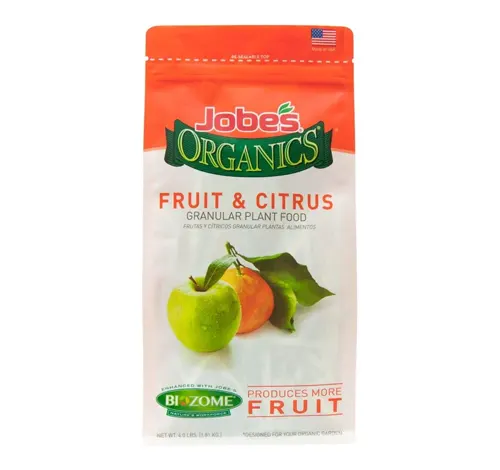
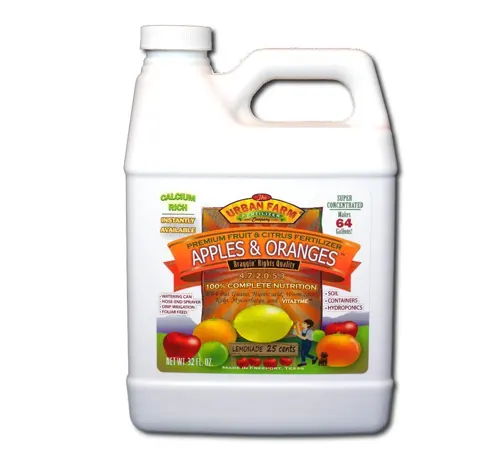
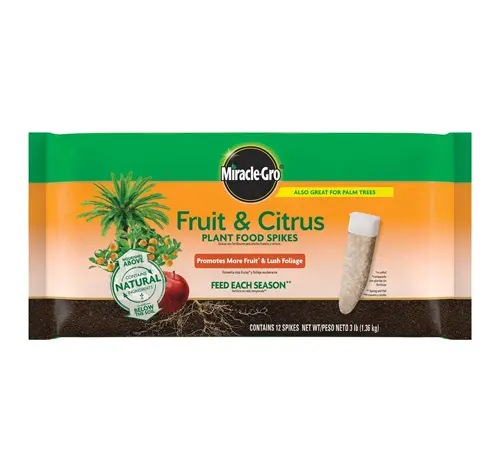
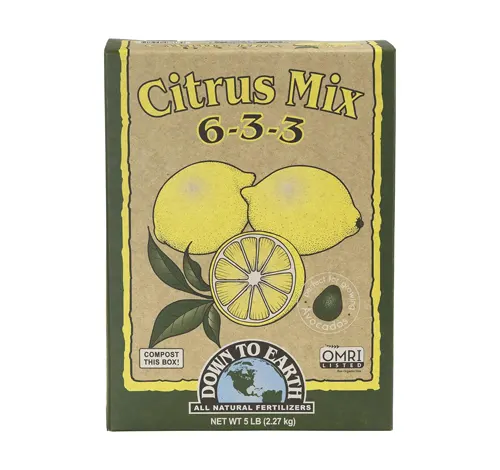
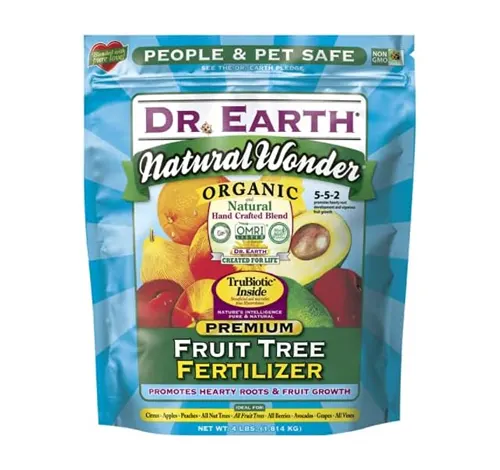
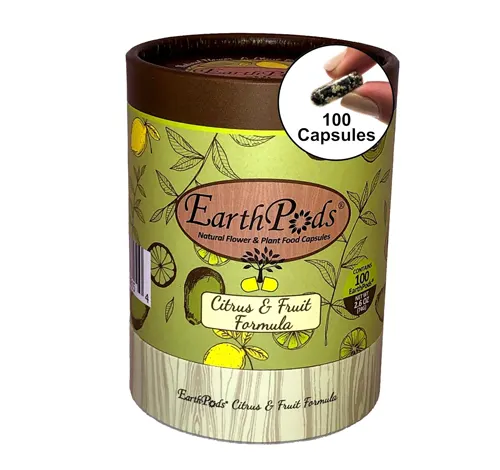
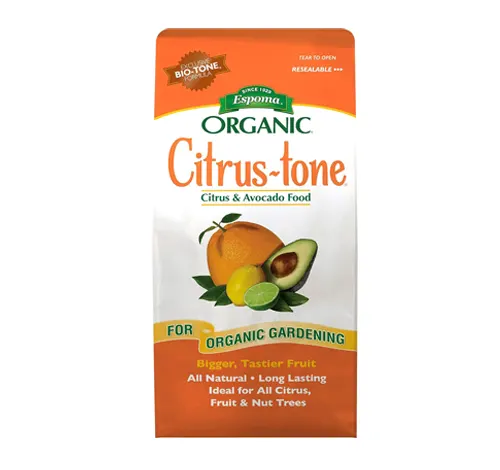

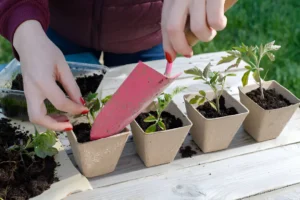










Leave your comment